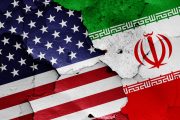
In the biblical Book of Acts, the apostles Peter and John were told by the Jewish authorities that they were no longer to teach or speak in the name of Jesus. Their response was blunt: “Whether it is right in the sight of God to give heed to you rather than to God, you be the judge; for we cannot stop speaking about what we have seen and heard.”
With this story in mind, it is important to ask if Pope Francis has chosen to take another course in his directives to Chinese Catholic leaders. According to the Vatican newspaper, L’ Osservatore Romano, in an article published on Sunday, the pope has urged “all the Bishops to renew their total adherence to Christ and the Church,” but added, “as members of the Chinese people, they are obliged to show respect and loyalty to civil authorities.”
According to the Global Times, Wang Meixu, a research fellow at the Chinese Academy of Social Sciences, commented, “The announcement shows that the Vatican is calling on all the clergy and the faithful, including those who regard themselves as from the ‘underground churches,’ to be in solidarity and to support the bishops’ pastoral duties.”
While Christians have historically strived to be good citizens, and generally support civil authority while it is exercising its biblical role of restraining evil in society, they have often balked at attempts by government to dictate purely ecclesiastical matters. For example, when Adolf Hitler’s National Socialist dictatorship attempt to coopt German Christianity and mold it to support the totalitarian regime in its anti-Semitic and anti-Christian directives, many Christians, both Protestant and Catholic, resisted, even to the point of imprisonment and death.
In this case, the pope has surrendered some authority to the atheistic Chinese communist government in the selection of Catholic bishops in China. Cardinal Joseph Zen, the former bishop of Hong Kong, has expressed concern about the deal as much of the precise details are “secret.”
Zen explained, “Government officials are trying to pressure all Catholics to join the Patriotic Association [the institutional church in China that is recognized by the Chinese government].” While doing so has not been “mandated by the Vatican,” Christians in the so-called underground church [the churches that are not operating under government supervision] have refused to merge with the Patriotic Association.
Governments have long attempted to meddle in the affairs of the church, even to the point of making it a branch of the civil government. English monarchs fought hard to control Christianity in that country, attempting to force all Christians into one established church, the Church of England. People in England were expected to change their beliefs according to those of the monarch — with Protestant monarchs persecuting Catholics, and Catholic monarchs persecuting Protestants.
In the case of China, the communist dictatorship wishes to control the community of Christians, simply because they believe all elements of society should support the communist dictatorship. The pope’s remarks have led to some confusion, and “the communists are taking advantage of the confusion to try to force Catholics to join” the Patriotic Association, said Zen.
“We need to study our history,” Zen said. “Why are there two Catholic communities in the first place? There was a reason. The Catholic Patriotic Association teaches against Catholic doctrine and this has not changed.” It certainly should not be surprising that an association under the thumb of atheistic communists does not follow Catholic doctrine.
Perhaps Pope Francis should be more specific as to what he means by showing “respect and loyalty to the civil authorities,” by stating that the civil authorities in China should respect the religious liberty of its people. But, respect for religious liberty, or any other kind of liberty, is not part of communist doctrine. From the time of Karl Marx, Communists have made it very clear they consider religion — particularly Christianity — the enemy of atheistic communism.
Exactly how a devout Catholic is supposed to show “loyalty” to a regime that has tried to exterminate the Christian faith has not been adequately explained. Considering that Catholics contend that Peter was the first pope, perhaps his response to the authorities of his day that he would not stop preaching in the name of Jesus is a good guide for this pope and the Catholic Church in China today.
Photo: AP Images




